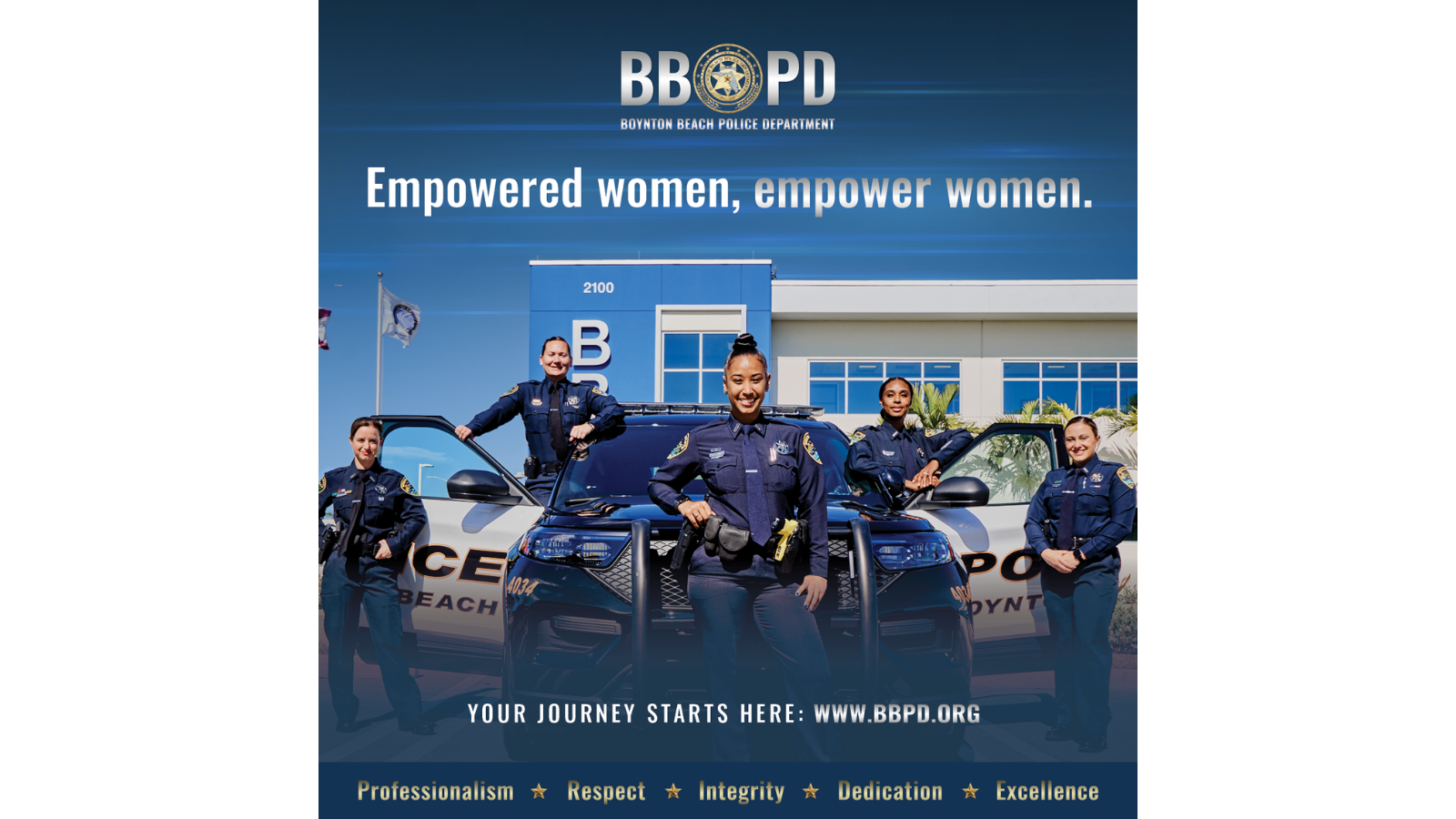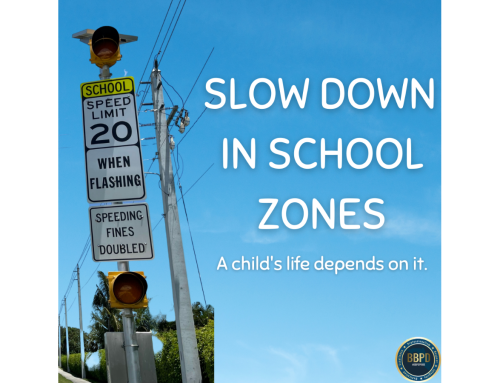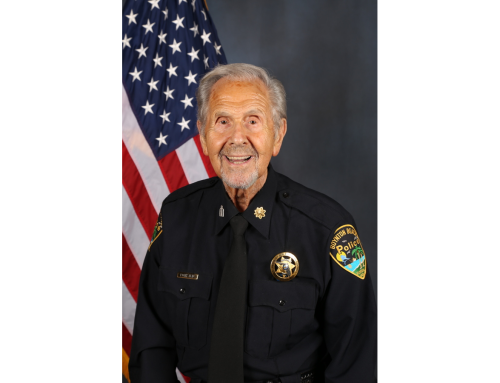The Boynton Beach Police Department has signed on to the 30×30 Pledge – a series of low- and no-cost actions policing agencies can take to improve the representation and experiences of women in law enforcement. The activities help policing agencies assess the current state of a department with regard to gender equity, identify factors that may be driving any disparities and develop and implement strategies and solutions to eliminate barriers and advance women in policing. These actions address recruitment, assessment, hiring, retention, promotion, and agency culture.
The Pledge is the foundational effort of the 30×30 Initiative – a coalition of police leaders, researchers, and professional organizations who have joined together to advance the representation and experiences of women in all ranks of policing across the United States. The 30×30 Initiative is affiliated with the Policing Project at NYU School of Law and the National Association of Women Law Enforcement Executives (NAWLEE).
The ultimate goal of the 30×30 Initiative is to reach 30 percent of women in police recruit classes by 2030, and to ensure policing agencies are truly representative of the jurisdiction the agency serves. While 30×30 is focused on advancing women in policing, these principles are applicable to all demographic diversity, not just gender.
“This pledge means that the Boynton Beach Police Department is actively working toward improving the representation and experiences of women officers in our agency.” Police Chief Michael G. Gregory said. “We are honored to be among the first in the nation to make this critical commitment, and we look forward to working with and learning from agencies across the country who share our priority.”
More than 100 agencies – from major metro departments including the New York City Police Department, to mid-sized, rural, university and state policing agencies – have signed the 30×30 Pledge. The Pledge is based on social science research that greater representation of women on police forces leads to better policing outcomes for communities.
Currently, women make up only 12 percent of sworn officers and 3 percent of police leadership in the U.S. This underrepresentation of women in policing has significant public safety implications. Research suggests that women officers:
- Use less force and less excessive force
- Are named in fewer complaints and lawsuits
- Are perceived by communities as being more honest and compassionate
- See better outcomes for crime victims, especially in sexual assault cases




